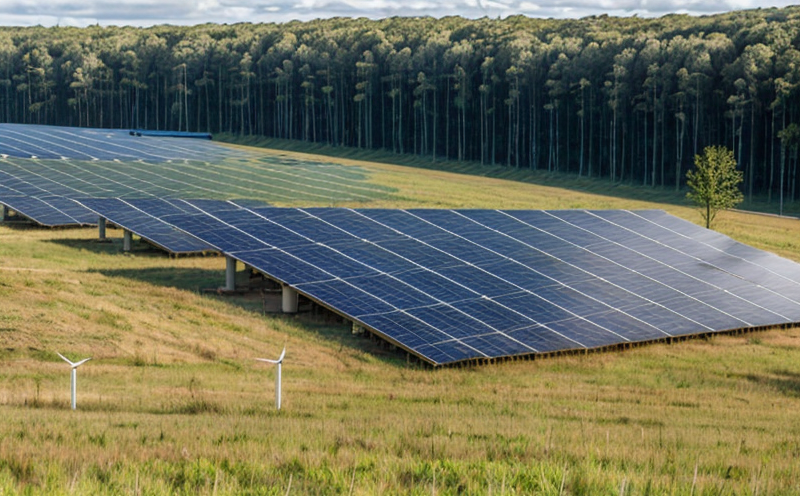EN 15978 Building Environmental Impact of Renewable Energy Installations Test
The European standard EN 15978 is designed to assess the environmental impact associated with renewable energy installations within buildings. This test provides a comprehensive evaluation framework that helps stakeholders understand and mitigate adverse ecological effects, ensuring sustainable design and operation.
At its core, this test evaluates various factors including carbon footprint, resource depletion, habitat disruption, and energy efficiency of the installation. It is particularly important for architects, engineers, and construction professionals looking to incorporate renewable energy into new or existing buildings while adhering to environmental standards.
The standard applies universally across Europe but also has significant relevance globally due to its rigorous scientific basis and alignment with international sustainability goals. By conducting this test early in the design process, project teams can identify potential issues and make informed decisions that enhance both performance and compliance.
EN 15978 emphasizes a lifecycle approach, focusing not just on initial installation but also long-term maintenance and decommissioning phases. This holistic perspective ensures that all stages of an installation are considered from an environmental standpoint.
The test involves detailed data collection using advanced monitoring technologies to track key metrics such as greenhouse gas emissions, water usage, waste generation, and energy consumption patterns. These metrics provide valuable insights into the overall sustainability profile of the installation.
Specimen preparation is critical in this process; it typically includes representative samples from different components like solar panels, wind turbines, or geothermal systems integrated into building structures. Proper sample handling ensures accurate measurement results which are essential for reliable assessment outcomes.
Instrumentation plays a pivotal role here too. High-precision sensors and data loggers capture continuous readings over extended periods, providing robust datasets against which to evaluate performance trends. Advanced computational models then analyze these inputs to generate detailed reports outlining the environmental impacts of each component.
Acceptance criteria define what constitutes successful completion of the test according to EN 15978 guidelines. Compliance with these standards signals adherence to best practices recognized internationally, thereby enhancing credibility among clients and stakeholders alike.
This assessment isn't merely theoretical; it translates directly into practical benefits such as reduced operational costs through optimized energy usage, improved regulatory compliance leading to potential financial incentives, enhanced brand reputation due to demonstrated commitment towards environmental stewardship.
Why It Matters
The importance of EN 15978 cannot be overstated in today’s world where sustainable development is increasingly being prioritized across industries. As countries strive to meet ambitious climate targets, there's growing pressure on businesses and organizations to adopt greener practices.
- Regulatory Compliance: Adhering to EN 15978 ensures that renewable energy installations comply with relevant regulations set forth by local authorities.
- Economic Benefits: By identifying areas where improvements can be made early in the project lifecycle, organizations save money on unnecessary expenditures later down the line.
- Social Responsibility: Demonstrating a proactive stance towards environmental protection builds trust with consumers and partners alike.
Why Choose This Test
Selecting EN 15978 as part of your renewable energy project ensures that you receive expert guidance tailored specifically to the unique challenges posed by integrating these technologies into buildings. Our team leverages our extensive experience in environmental testing combined with state-of-the-art facilities to deliver accurate, reliable results.
We offer flexible scheduling options allowing you to fit the test into your existing timeline without disrupting workflow. Additionally, we provide comprehensive support throughout every stage of the project, from initial consultation through final report delivery.
By choosing us, you're investing in a robust foundation for future growth and sustainability efforts. Our commitment to excellence guarantees that all aspects of your renewable energy installation receive thorough scrutiny under strict quality control measures.





